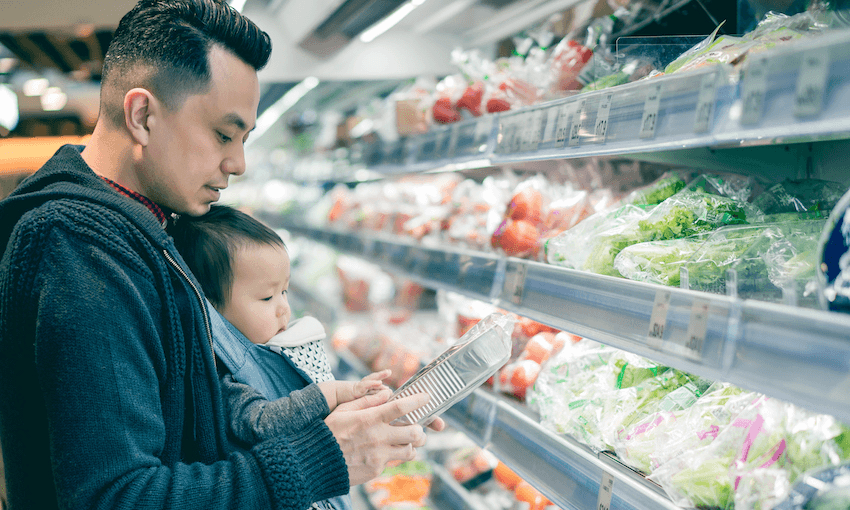The Consumers’ Right to Know (Country of Origin of Food) Bill passed in parliament last night, with support from all parties apart from Act. Here’s what it means for your supermarket shop.
Sorry, I’ve missed all this, what are you on about?
Back in 2016, then-Green MP Steffan Browning introduced a member’s bill that proposed mandatory country-of-origin labelling (CoOL) on all single-component foods. This would bring New Zealand in line with many other countries, including Australia, the United States and the United Kingdom.
Righto, so now it’s law?
Well, there was a bit of to-ing and fro-ing.
Browning’s bill, which he passed on to Green MP Gareth Hughes after leaving parliament, made it to select committee stage in 2017. This was following a change of heart from the National government, which decided to support the bill after initially opposing it.
The Primary Production Select Committee considered 401 submissions on the bill and released its interim report on 11 July 2018. It recommended the bill be restricted to foods that were fresh or frozen (not dried, cured or pickled) and no more than minimally processed, which would exempt things like bacon, tinned fruit, dried fruit, nuts, seeds and grains and frozen crumbed fish fillets.
Outrageous!
Well, yes, especially considering that more than 60% of pork products consumed in New Zealand are imported from 20-plus countries, and when you narrow it down to bacon, the figure is more likely 80-90%.
Because brands aren’t required to state this on the label — and many say ‘manufactured in New Zealand’ if the product is processed here — there’s no way of truly knowing where a lot of bacon comes from. This means that growth hormones and antibiotics could have been used, and the pigs were likely raised in intensive factory-farming scenarios that wouldn’t meet New Zealand’s welfare standards.
Then what happened?
Lots of people weren’t happy, including Browning, the original bill’s author, who said the proposed changes “made a mockery of the intent of the bill”, and Consumer NZ, which reckoned they “significantly weakened” it.
There was another three-week submission period to seek feedback on the proposed changes, during which the committee received 138 submissions, only three of which supported them (one of those was from Countdown).
According to parliament’s overview of submissions, “The inclusion of processed meats, particularly processed pork products, was a common request. Over 30 submitters mentioned the inclusion of bacon, ham or processed meat products. Submitters commented on what they saw as the misleading labelling of pork products that are processed in New Zealand but the pork itself is from overseas.”
So did they listen?
Reader, they did! The select committee recommended cured pork products be put back under the scope of the bill.
Seeds, nuts and grains remain excluded from the final bill, because of complexities around processing and sourcing, which the select committee felt would add costs to businesses. Tinned vegetables and fruit and frozen mixed vegetables will also not be covered.
Now what?
Importantly, the act allows commerce and consumer affairs minister Kris Faafoi to extend the regulations to other foods under the Fair Trading Act – something Consumer NZ has said it will be pushing for.
Faafoi now has 18 months to issue a consumer information standard that will set the labelling requirements. After it’s issued, fresh produce has six months to get on board, and frozen produce 18 months. After that, those failing to comply could face fines up to $30,000.
How will it affect me?
Country-of-origin labelling will be mandatory for fresh or frozen fruit, vegetables, meat, fish and seafood, which means you’ll be able to know where your food comes from and make better-informed choices. You should care about that for all sorts of reasons. Some manufacturers opposed to the bill have said label changes and tracking systems will increase costs to consumers, but Consumer NZ doesn’t buy it.

